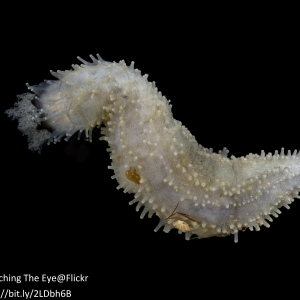
1st Joint Call: SKUD
Background
Sea cucumbers are a delicacy across South and East Asia, yet with increasing market pressure and the effects of climate change, numbers are reducing at an alarming rate, particularly in the Indo-Pacific. Sea cucumber fisheries are in a worse state than most fisheries globally.
Over the past 2 decades, the production a particular breed of edible sea cucumber, Holothuria scabra, has ensured sufficient production and made its aquaculture profitable. However, it is thought that increasing water temperatures and ocean acidification could be causing an increase in skin ulceration diseases in sea cucumbers. Such diseases could seriously affect their production, affecting not only the animals, but also the local economies which depend upon their growth and sale.
The project
The SKUD project aims to study the emergence of diseases, especially SKUDs, in edible sea cucumbers outside Madagascar, especially in Thailand and France, within a global change framework.
The team aim to firstly make a survey of parasites and diseases of two edible sea cucumbers (Holothuria forskali in France and Holothuria scabra in Thailand, and will then determine the cause(s) of SKUDs on these species. With this information, the team will then assess the effects of increased temperature and decreased pH, at values commensurate with predicted global changes, on SKUD prevalence and development.
The Science
The SKUDs that are emerging diseases in new aquacultures will be characterized for the first time by adequate “high tech” methods including metagenomic analyses and the originality of the researches as well as the strength of the involved teams insures the diffusion of the results through international publications. The assessment of the possible impact of global change stressors on SKUD diseases will help forecasting and preventing their exacerbation in aquaculture conditions. The cost of possible mitigations through manipulation of temperature and/of pH in aquaculture basins can then be assessed.
Commercially, the understanding of sea cucumber diseases is of the utmost importance as these fisheries expand worldwide with a Chinese market pressure of increasing affluence. Sea cucumbers have attracted much interest in export-oriented fisheries in at least 70 countries. Collecting sea cucumbers for production of ‘‘bêche-de-mer’’ or ‘‘trepang’’ (the dried body wall) and export to the Asian dried seafood market has a long history in the productive waters of the Indian and Pacific Oceans. The majority (66%) of sea cucumber fisheries involved small-scale fishing operations for export. The Team:
The SKUD partners are:
Igor EECKHAUT/ University of Mons (Belgium)
Anchana PRATHEP / Prince of Songkla University (Thailand)
Philippe DUBOIS / Free University of Brussels (Belgium)
Nadia AMEZIANE / Muséum National d'Histoire Naturelle, Station de Biologie Marine de Concarneau (France)
Contact:
Igor Eeckhaut

